Eric Fok Kai-shan — grandson of the late Hong Kong philanthropist and entrepreneur Henry Fok Ying-tung — has picked up the baton, helping to realize his grandfather’s vision and ‘Nansha Dream’. Wang Yuke reports from Hong Kong.
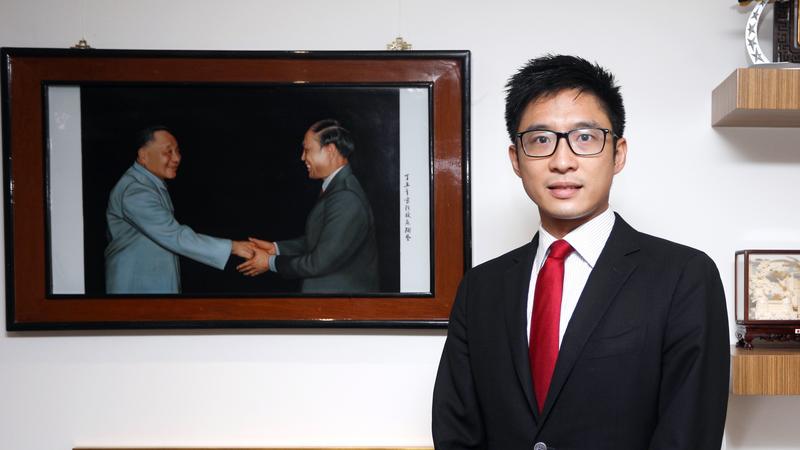 A treasured oil painting featuring Deng Xiaoping’s meeting with Fok Ying-tung (hangs on the wall in the office where China Daily’s interview with Eric Fok Kai-shan takes place). (CALVIN NG / CHINA DAILY)
A treasured oil painting featuring Deng Xiaoping’s meeting with Fok Ying-tung (hangs on the wall in the office where China Daily’s interview with Eric Fok Kai-shan takes place). (CALVIN NG / CHINA DAILY)
Eric Fok Kai-shan — a grandson of the late Hong Kong business magnate Henry Fok Ying-tung has a modest and low-profile stance that underpins his prominent family’s humble origins. Eric Fok, with his feet firmly on the ground, aspires to realize his grandfather’s unfulfilled dream.
On Henry Fok’s first visit to Panyu (now part of the Guangdong provincial capital Guangzhou) to trace his family’s roots, he had a vision for Nansha, then a desolate fishing hamlet adjacent to a quarry, to transform the undeveloped area into a thriving deep water port and a coastal city with a gracious lifestyle that would be ecological and sustainable, pulsating with a leisurely, well-heeled and cultured quality of life, in addition to scientific research activities.
After all, Rome wasn’t built in a day. Eric Fok, currently vice-president of Fok Ying Tung Group, has picked up the baton, turning his grandfather’s vision into reality.
Today, more than 40 years on, Nansha is unrecognizable from the sight that first stoked Henry Fok’s imagination. It’s gone from nothing to something, as Eric Fok puts it. An elegantly-styled Nansha Grand Hotel is just a five-minute stroll from Nansha Ferry Terminal, while Nansha Bay Stone Village — a low-density residential complex — offers a secluded oasis and getaway from the hustle and bustle of city life. There is also Nansha Marina — the first yachting facility on the Chinese mainland to attain the world-notch “Five Gold Anchor” rating by the Yacht Harbor Association — doling out premier yachting and sailing services, training and hospitality. All these facilities come with a dazzling array of cultural and dining spots, an effervescent boulevard, and transportation choices to create a lifestyle that Henry Fok had vouched for.
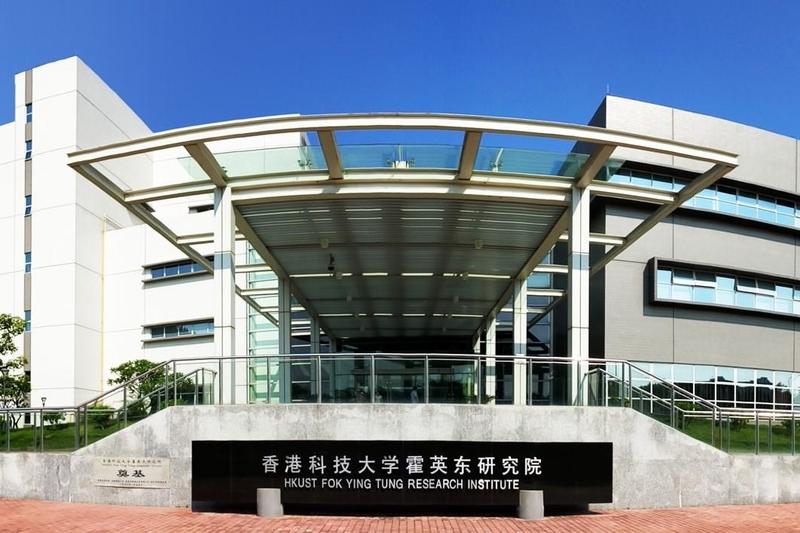 HKUST Fok Ying Tung Research Institute. (PHOTO PROVIDED TO CHINA DAILY)
HKUST Fok Ying Tung Research Institute. (PHOTO PROVIDED TO CHINA DAILY)
‘A herculean task’
When Fok speaks of his grandfather, his tone is filled with nostalgia and reverence. “He decided to initiate the development of Nansha’s coastal city late in his career. It was a very challenging task for him in his seventies given that Nansha at that time was known as the ‘Siberia of Panyu’, eclipsed by Guangzhou and Shenzhen which were being developed,” Fok says.
Transforming the “no man’s land” was a herculean task. “I fondly remember he would go to Nansha every Wednesday no matter what,” Fok says. What kept his grandfather’s Nansha commitment and fervor alive? It’s the faith that we should “give back to where we came from”, which is imprinted in Fok’s mind.
Eric Fok sees his grandfather’s prophetic views about Nansha’s potential to morph into an international city. But an “international city”, which has been ubiquitously used to brand a modern city of today, seems to be lost in translation.
“Look at every major international city in the world — Hong Kong, Singapore, London, New York, where the common denominator is the deep sea port,” he says. And Nansha, in the middle of the Pearl River Delta and in a coastal city close to Hong Kong and Macao, is endowed with the natural elements necessary to become a cosmopolitan world city.
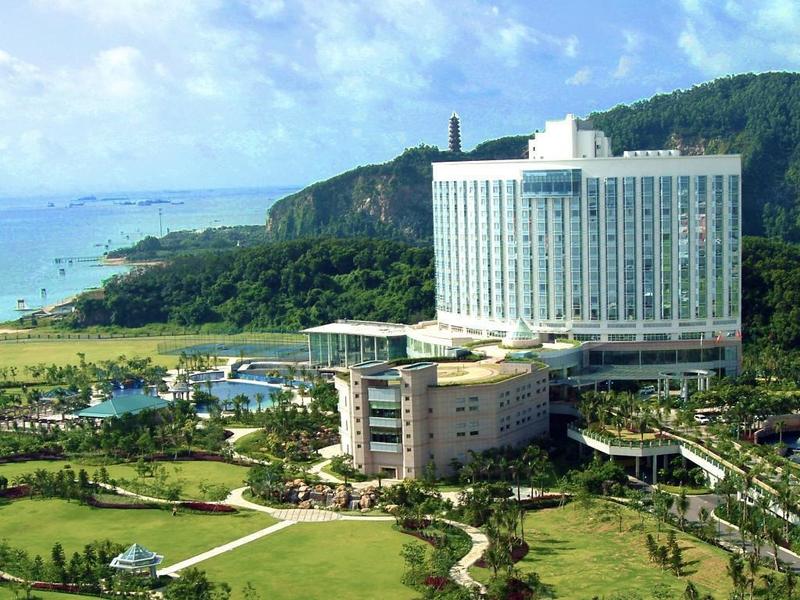 Landmark building Nansha Grand Hotel. (PHOTO PROVIDED TO CHINA DAILY)
Landmark building Nansha Grand Hotel. (PHOTO PROVIDED TO CHINA DAILY)
Nansha’s natural environment, unique lifestyle and a range of cultural facilities and experiences, together with the supportive policies of the Guangdong-Hong Kong-Macao Greater Bay Area, will induce “a seamless flow of residents, tourists, talent, professionals and information”. This is the hallmark of being international, Fok says.
Titillating “fun factors” in Nansha are also being rolled out. Among them is the recently opened Nansha Stone Inn. No plush grand lobby, no glitzy chandelier. Its traditional wooden furniture, Chinese vintage homeware and retro tiles and flooring exude a nostalgic factor that could take its occupants back to the old southern Chinese era, where Lingnan and water village culture prevailed.
“We want to incorporate southern Chinese cultural elements into our projects. If something is inside China, it should reflect Chinese characteristics,” says Fok. “China pride”, which has been baked in the Fok family for three generations, shines through in every project in which Fok is at the helm. And he knows what he’s doing — giving something back to his roots and the country.
To Fok, in his late thirties, helping to transform a place that used to be off the beaten track into a global hub is a formidable challenge. “Every opportunity comes with challenges,” he quips. He’s no stranger to meeting challenges head-on.
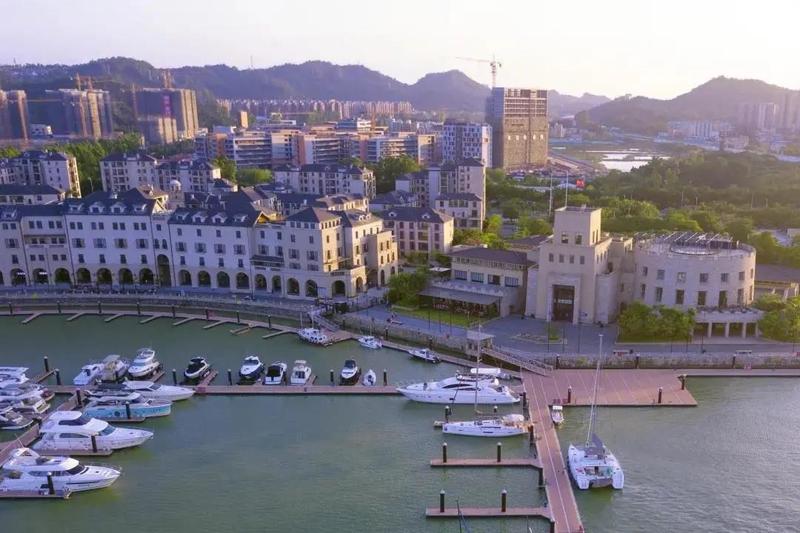 Nansha Marina, the first on the Chinese mainland to receive the world-renowned “Five Gold Anchor”. (PHOTO PROVIDED TO CHINA DAILY)
Nansha Marina, the first on the Chinese mainland to receive the world-renowned “Five Gold Anchor”. (PHOTO PROVIDED TO CHINA DAILY)
Sports promoter
Fok’s baptism of fire came with the Nansha Marina project — the first he had led in 2008 since moving back to Hong Kong after studying and working abroad. Three years later, the marina was launched and it was graced by Jacques Rogge, then-president of the International Olympic Committee. “He (Rogge) had a word of encouragement, saying this was a pioneer project for sports,” says Fok. “He (Rogge) also encouraged us to promote sailing which is an Olympic sport, especially youth sailing.” Sometimes, a pat on the back from a very important person can be a source of motivation and hope for one to negotiate curveballs before making further advances. Fok did as Rogge had hoped. He approached local schools, offering sailing classes to give children early exposure to water sports.
Another seal of approval for Nansha’s achievement in sailing came in 2018 when the Volvo Ocean Race — the sailing equivalent of the World Cup– chose Nansha Marina as its only stopover on the Chinese mainland. As Fok reminisces about this milestone, his excitement and pride are contagiously palpable.
Fok is also tackling the issue of yacht and boat movements between Hong Kong, Macao and Guangdong, which are currently limited from navigating Chinese mainland waters. This constrains yachting from gaining nationwide traction. He has been actively promoting the realization of the Guangdong-Hong Kong-Macao Yachting Free Movement proposal. “Before the 1997 handover, cars couldn’t move freely between Hong Kong and the mainland, but integrated policy and regulations have made it possible. So, wouldn’t it happen to sailing? It could be just a matter of time.”
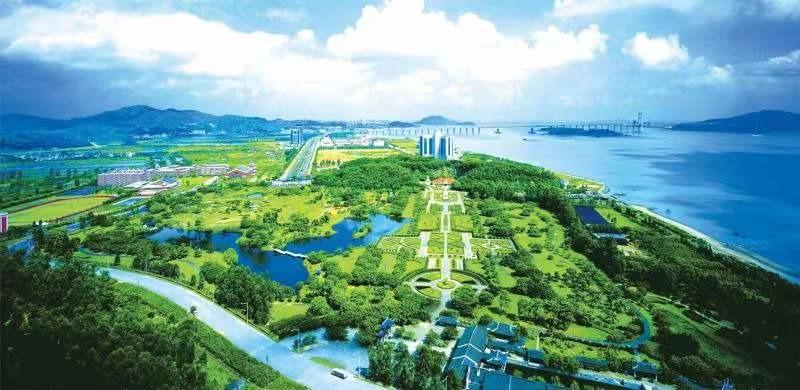 A bird’s-eye view of the burgeoning Nansha Bay. (PHOTO PROVIDED TO CHINA DAILY)
A bird’s-eye view of the burgeoning Nansha Bay. (PHOTO PROVIDED TO CHINA DAILY)
With a conviction that sports shouldn’t be reserved for a select few, Fok aims to democratize sports in Nansha, making it accessible to everyone. “Sports is indeed a part of (the) lifestyle,” he says.
The Nansha Golf Club — a 10-minute car ride from the ferry terminal that provides shipping services between Nansha and Hong Kong — is a non-membership club, which means it’s open to everyone. Whether you’re an adept golfer, one of the uninitiated or have some know-how, there’s a course that would fit you. “Sport is important because, as a nation, we have been going forward through sports and culture. We hope to not just provide sports opportunities for individuals, but to make it a community affair where everyone can take part,” says Fok.
Soccer is in Eric Fok’s DNA, partly because of his grandfather’s influence and partly stemming from his studies in England. As executive committee member of the Asian Football Federation and Vice-Chairman of the Hong Kong Football Association, Fok is resolved to harness the sport to strike a chord among youngsters from Hong Kong and the Chinese mainland.
 Nansha Stone Inn makes a southern Chinese cultural statement. (PHOTO PROVIDED TO CHINA DAILY)
Nansha Stone Inn makes a southern Chinese cultural statement. (PHOTO PROVIDED TO CHINA DAILY)
When sports and youth — the epitomes of dynamism and positivity — meet, there is chemistry. The idea of leveraging sports to spark heartfelt interaction can be traced back to 1979 when the first Guangdong-Hong Kong Cup was held to promote integration and exchanges between the two places, says Fok. But these days, the focus of Guangdong-Hong Kong communication “has been extended to the youth”. As chairman of the Hong Kong Guangdong Youth Association, he initiated the first session of a Greater Bay Area youth soccer contest in 2018 — a seminal year marking the 39th Guangdong-Hong Kong Cup and, coincidentally, the 40th anniversary of China’s reform and opening-up. “We hope our youths can better understand the nation’s development by taking part in the tournaments.”
On his plan to promote the integration of Hong Kong and the Greater Bay Area, Fok says he will still place a premium on cross-border youth interaction through sports, culture and tourism— a go-to conversation starter that fosters a sense of togetherness and belonging.
He strongly adheres to his grandfather’s Nansha vision. Now it’s also his. A “signature voice” and an inviting personality, who is vigorous, approachable and open-minded for Nansha, are what he’s pursuing. He thinks big, does so sustainably and is a massive overachiever.
He will persistently contribute his fair share while youths in the Greater Bay Area too must do their part.
“It’s my late grandfather’s unfulfilled dream. I feel obliged to carry on the legacy.”
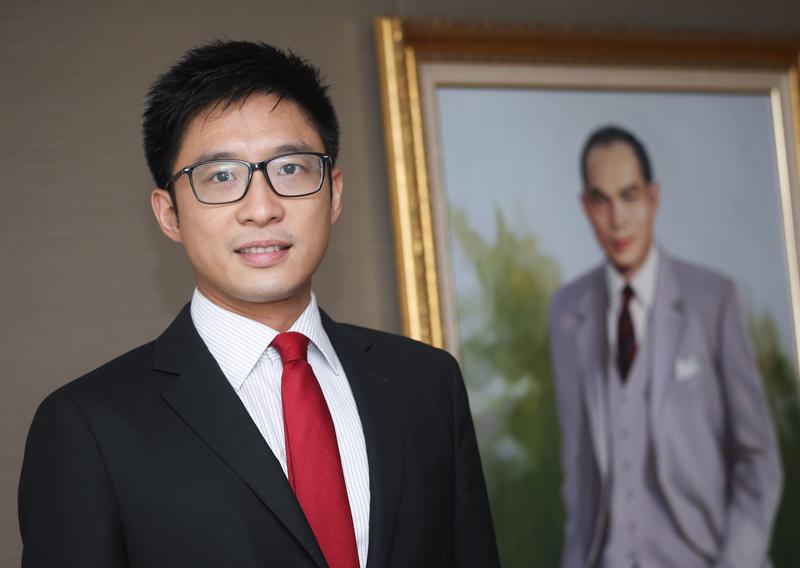 Eric Fok Kai-shan. (CALVIN NG / CHINA DAILY)
Eric Fok Kai-shan. (CALVIN NG / CHINA DAILY)
Q&A
Q: As a leader in multiple communities, organizations and programs, what are the key traits for good leadership that can motivate a team to move a needle?
A: As a leader, first, you need a vision and a clear direction so that the team will subscribe to it and work together with you. Another crucial element is mutual respect. There is no pecking order. The way you treat people is the way they treat you.
Q: What’s your tactic to attract investors from home and abroad to take part in Nansha’s development, as well as other projects the Fok Ying Tung Group is involved in?
A: Our family is privileged to have the opportunity to participate in China’s reform and opening-up since its inception. My grandfather built modern infrastructure and hospitality facilities, such as the Zhongshan Hot Spring Hotel and golf course, the first of its kind on the mainland, as well as the more well-known White Swan Hotel in Guangzhou, the first 5-star hotel on the mainland. His pride that it was designed by Chinese, built by Chinese and managed by Chinese. He showed the world the nation’s transformation and fostered confidence in China that drew in foreign investment naturally and organically. So, what our family can help and contribute to is to give people the confidence to contribute to the continuing development of China.
Q: Nansha Marina is the first marina on the Chinese mainland to win an international 5-star rating, which is a very impressive track record. But yachting could be something of a slow burn on the mainland as many cities are not blessed with coastal resources. What do you think about it?
A: We’re honored to get the first 5-star rating for the marina on the mainland. We hope to drive and set high standards for this emerging sector in China and encourage more people on the mainland to enter this nascent market. Once they do it, they will start from a high plane.
Contact the writer at jenny@chinadailyhk.com


